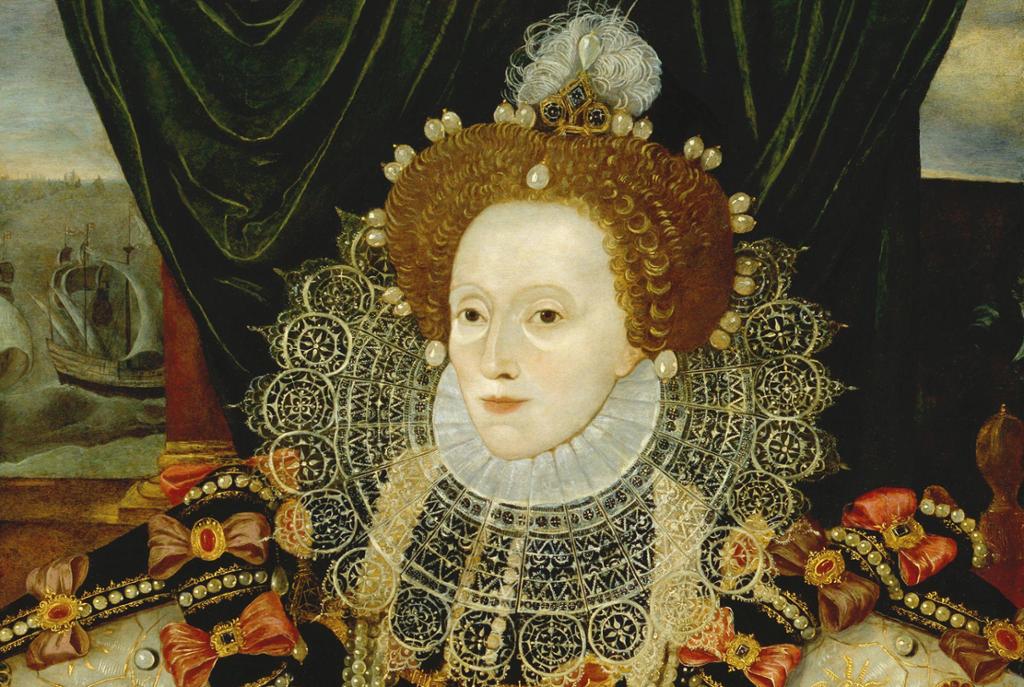The First British Empire

Explorations and discoveries led to opportunities never available before. England began to build a strong navy during the reign of King Henry VIII (1509–1547). During his daughter Elizabeth I's reign (1558–1603), England defeated Spain in a war. When Columbus discovered America, the expedition was financed by Spain. This gave Spain the opportunity to claim large territories in 'the New World'. Defeating Spain made it easier for England to establish colonies in America. England's first permanent settlement was established in Virginia in 1607. In the 17th century, it was generally held that trade would be far more productive and commercially profitable if colonies were founded.

Contact between the British and the Indigenous peoples in America was initially peaceful: in the first few years there was trade between the British and the Native Americans. However, by 1609 the settlers were sending raiding parties against the nearby tribes to gain provisions for the settlement. By 1610, the Jamestown settlers were at war with the Powhatan people. Over the years, many peace treaties were made, and many were broken. The settlers arrived in steadily greater numbers, and the Indigenous peoples lost more and more of their land.
The thirteen American colonies formed the core of Britain’s first empire. But when the colonies gained independence from Britain after the American War of Independence (1775–1783), Britain had to look elsewhere for replacement territories. During the 17th and 18th centuries, Australia and New Zealand gradually came under British control. Canada remained loyal to the British crown despite American independence. To this day, the British sovereign is head of state in Canada.
Trade and foreign contacts brought changes to Britain as well. In the late 18th century, the textile industry of Lancashire propelled British industrialisation forward and paved the way for the Industrial Revolution. Industries, some based on foreign products traded around the world, emerged in British towns and cities, and vast numbers of people moved from the countryside to work in the newly established factories. The social fabric changed, and this created hardships for many people. However, the rapidly expanding industrial society also produced endless opportunities.
Towards the end of the 18th century, the triangular trade evolved between Britain, the West Coast of Africa, and the Caribbean/America. Slaves were an important part in this trade: Britain exported textiles, rum, and manufactured goods to Africa. In West-Africa, the British purchased slaves, who were brough across the Atlantic Ocean to work on plantations as slaves. The plantations produced cotton, sugar, and tobacco. These products were sent back to Britain for refinement and sale.
The triangular trade was hugely profitable for British traders and industrialists, and the accumulated capital was redistributed into new factories and businesses at home. However, there was opposition to the slave trade, and in 1807, the British Empire banned the export of slaves from Africa.

The British home market demanded more and more goods to continue its growth, and traders realised that closer control of overseas production lines would pay off. Moreover, to protect markets from European competitors, it became necessary for Britain to take territorial control to discourage interest from other nations.
When they established colonies, the British spread the English language around the world. The British brought slaves to their American colonies, and the system of slavery would continue long after the colonies gained independence. Very little consideration was shown to the Indigenous peoples in the areas the British colonised; at best they were regarded as subjects that would benefit from the civilising influence of the British.
Take this quick quiz to check what you remember from the text.
Relatert innhold
Tasks related to the articles about the British Empire.